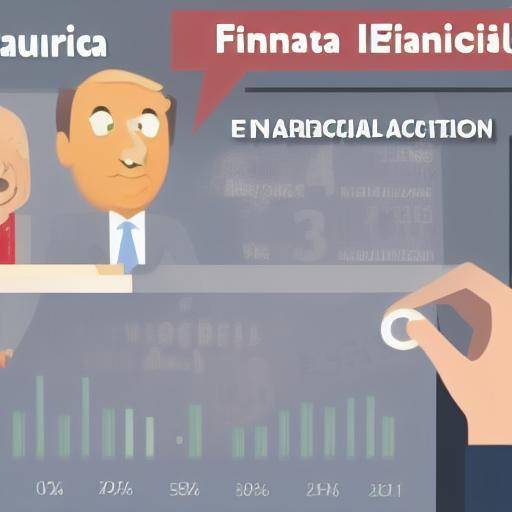
Introduction
Teaching children about money is one of the most important lessons we can provide to prepare them for a financially healthy future. It is essential to inculcate the importance of money management, savings and investment from an early age. In this article, we will explore effective strategies to teach finance to children, how to manage family finance intelligently and the importance of financial education in the development of sound financial skills.
History and Background
The first lessons of financial education for children go back to age, where parents and teachers taught young rudiments about bartering, the value of money and the importance of savings. Throughout history, financial education has evolved in response to economic and technological transformations. From the introduction of currency to the digital era, the understanding of finance has been crucial to the prosperity of societies.
In the last century, financial education has gained prominence in the academic and social spheres. It has been recognized as essential for informed financial decision-making and for promoting economic stability at the individual and family levels. The 2008 global financial crisis marked a turning point, generating renewed interest in strengthening financial education from an early age.
Analysis in Deep
Financial education for children has many benefits. Instilling healthy financial habits from childhood fosters long-term responsibility, self-control and planning. However, it also presents challenges, such as the need to adapt financial concepts to the age and level of understanding of children.
Studies have shown that children receiving financial education are more likely to make successful financial decisions in their adult life. Furthermore, understanding financial concepts from an early age can reduce debt burdens and promote wealth accumulation over time.
Exhaustive examination
Financial education for children can be addressed through innovative approaches, such as the use of games and practical activities that reinforce financial concepts. Establishing an environment that fosters open conversations about money and home savings is equally crucial. It is essential that parents be models to follow in financial management, as children tend to imitate their parents' behaviors and attitudes towards money.
Financial education in the family sphere is essential to promoting long-term economic stability. Establishing a family budget, fostering savings and financial planning, and teaching the value of money are key pillars of financial education at home.
Comparative analysis
By comparing financial education to children, family finance and financial education, we find that these concepts are interconnected and mutually reinforcing. Financial education for children lays the foundation for understanding family finance, while financial education provides a comprehensive framework for addressing financial goals throughout life.
Practical Tips and Accessible Tips
Teaching Child Finance
- Promote savings through a candy.
- Use games to teach financial concepts.
- Involve children into buying decisions to understand the value of money.
Family Finance
- Establish family financial targets.
- Develop a monthly budget with the participation of all family members.
- Educate children about the importance of family financial planning.
Financial education
- Find online educational resources on financial education.
- Promote understanding of concepts such as investment, interest and risk.
- Promote the development of financial decision-making skills.
Perceptions of Industry and Expert Reviews
According to experts in financial education, the inclusion of financial education in the school curriculum is critical to preparing future generations with strong financial skills. They also emphasize the importance of integrating financial education at home to reinforce the concepts learned at school.
Case Studies and Applications in Real Life
A case study revealed that children who participated in financial education programmes showed greater financial knowledge and a more positive attitude towards savings and investment. These results showed that early financial education can have a positive impact on financial behaviour throughout life.
Future Trends and Predictions
Economic experts point out that the integration of financial education at the early stages of education will have a significant impact on future financial decision-making. In addition, digitalization is generating new opportunities to access online educational resources, which will likely expand the scope of financial education.
Conclusions
Teaching children about money is crucial to preparing them for a solid financial future. Financial education, both in the family and in the school environment, plays a key role in the development of financial skills. By equipping children with financial knowledge and skills from an early age, we contribute to strengthening their financial security throughout their lives.
Frequently asked questions
How can I start teaching finance to my children?
Start by talking openly about money and savings at home. Use practical activities and games to teach financial concepts in a fun and accessible way for children.
How important is financial education in school curricula?
Financial education in school programs is crucial to preparing students with practical financial skills that will be useful to them throughout their lives.
What are the best practices to involve children in family financial management?
Including children in discussions on family budget, financial targets and purchasing decisions is an effective practice to foster financial responsibility from an early age.
What is the long-term impact of early financial education?
Early financial education has shown a significant impact on healthy financial decision-making throughout life, reducing debt burdens and promoting savings and investment.
How can I teach my children about investments?
Introducing concepts such as investment, composite interest and diversification in an accessible and child-sensitive manner is key to teaching them about the world of investments.
What are the main trends in financial education for children?
The main trends include the use of technology to access educational resources, the focus on practical financial skills and the integration of financial education into the school curriculum from an early age.
With these strategies and resources, you are prepared to teach children about money effectively, fostering healthy financial understanding and laying the foundations for a solid financial future.









